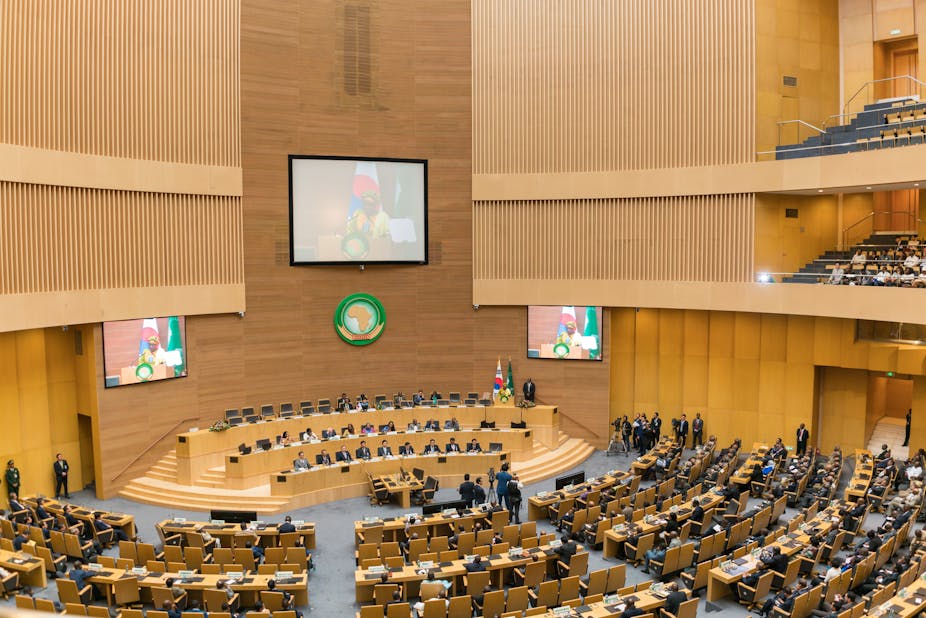Ghana’s Supreme Court recently put itself at odds with the African Court on Human and People’s Rights when it disregarded a provisional order made in favour of businessman Alfred Woyome.
The African Court had ordered Ghana to suspend all efforts to retrieve a USD$11.3 million debt from the businessman until his appeal was heard. But Ghana’s Supreme Court ignored the order and sanctioned the government’s plans to attach Woyome’s property to settle the debt.
The decision by Ghana’s Supreme Court has cast doubt on the enforceable mandate of the African Court.
In disregarding the order Ghana relied on its own jurisdiction granted by the country’s Constitution. But the principles that inform state policy in Ghana require that the government respects international law when it’s been adopted locally.
The framers of the Ghanaian Constitution envisaged a cordial relationship between local and international law particularly when it comes to international courts. They certainly did not plan for a scenario like the one that’s currently being played out.
The Woyome case shows some of the duplicated roles between Ghana’s Supreme Court and the African Court. These roles require mutual respect by both Courts. Absence of respect undermines justice and potentially violates the human rights of the parties. In addition, this situation questions the legitimacy of the African Court and the credibility of regional justice.
As a result, the progressive development of the African human rights system is negatively affected. It should be noted that the scenario between Ghana and the African Court speaks to a broader regional problem. Other countries such as Libya for instance, have disregarded the provisional measures by the African Court.
The history
The Ghanaian courts have on various occasions held that the government is constitutionally required to respect international law. One such case is Ghana Lotto Operators v. National Lottery Authority (2008). Here the Supreme Court held that international human rights instruments such as the African Charter were applicable in Ghana.
This case illustrates the hitherto cordial relationship between Ghanaian jurisprudence and international law.
It was therefore a surprise when the Supreme Court disregarded Woyome’s provisional orders. It argued that it was disregarding the African Court’s decision because it found no factual or legal basis requiring it to share jurisdiction with any other court.
In making this judgement, the Supreme Court was interpreting the African Court’s jurisdiction in Ghana even though the country has signed the treaty that recognises the African Court’s competence to hear cases.
This was a departure from its earlier decisions in which it had shown it was willing to respect international law and treaty obligations.
To understand this departure, it’s useful to examine the jurisdiction of both courts.
Scope of the African Court’s jurisdiction
The African Court’s main mandate is to reinforce the functions of the African Commission on Human and Peoples Rights. It does this by protecting human rights within African Union member states. It does this by hearing cases relating to the interpretation of the African Charter which is the Protocol that established the court.
It also enforces the provisions of any other treaties that are ratified by AU state parties.
The court is also mandated to provide provisional measures in instances of extreme gravity and urgency. This is to avoid the possible violation of an applicant’s human rights. The mandate to grant provisional orders allows the court to intervene on behalf of nationals like Woyome.
The position of Ghana’s Supreme Court in the Woyome case raises the important question of concurrent jurisdiction between a domestic court and a regional court.
Concurrent jurisdictions
The article that deals with jurisdiction was adopted with minimal debate in 1998. In 2005, Ghana accepted the competence of the court to receive cases from Ghanaian individuals and nongovernmental organisations.
The framers of Ghana’s constitution therefore, envisaged the unfettered operation of the country’s domestic courts, as well as a cordial relationship between domestic and international law insofar as decisions from international courts were involved.
To solve the problems of concurrent jurisdiction two things must happen. First, the African Court has to satisfy itself that it has jurisdiction to give provisional orders when those orders are sought by African nationals. To do this, it must first ensure that the nationals belong to states that recognise the competence of the African Court.
Secondly, the person seeking the provisional remedies has to show that he or she enjoys rights under the African Charter - rights that will be violated irreparably if the order is not granted. In addition, the applicant has to show circumstances of extreme gravity and urgency, which necessitate the need for provisional measures.
For Ghana, the country must fully acknowledge the competence of the African Court by domesticating the court’s founding Protocol to enable domestic courts to apply continental law with ease. Indeed, Ghana’s failure to domesticate this Protocol is the source of all its jurisdictional problems.
But the same respect that Ghana’s courts attach to domestic decisions should be accorded to decisions of the African court despite the absence of a law that directly addresses concurrent jurisdiction. The African Court’s founding Protocol already empowers it with a treaty-based jurisdiction that makes its decisions binding in Ghana.
With regard to the Woyome case, while the Supreme Court of Ghana had the jurisdiction to disregard the regional order, it would have been prudent to respect it. The Attorney General would then have been given the responsibility of following up the matter with the African Court to have the order lifted or amended. This would have ensured that the cordial relationship between Ghana and the African Court was maintained.
As it stands, that relationship will have to be repaired.

